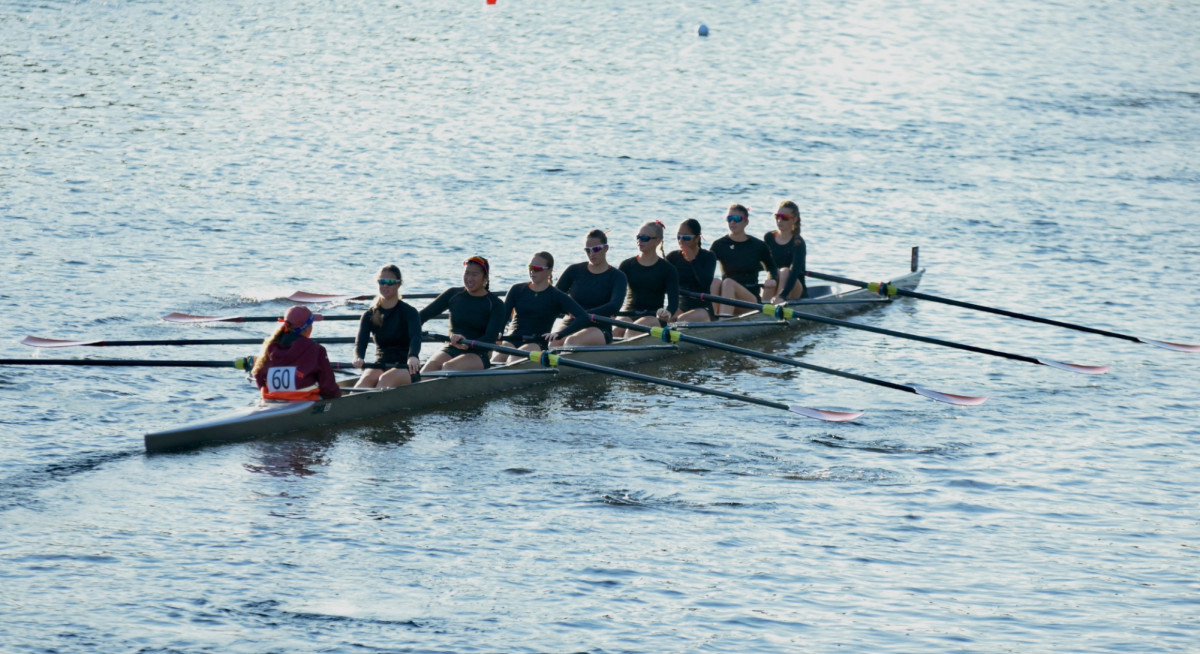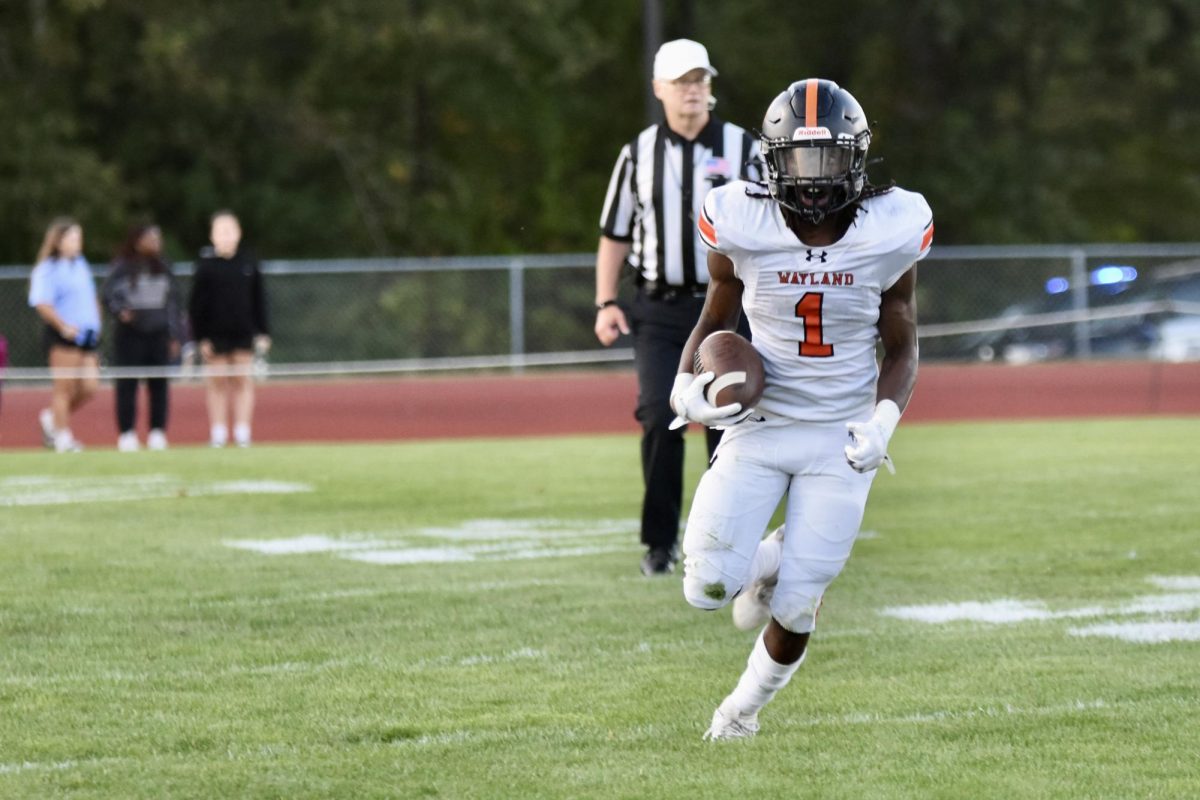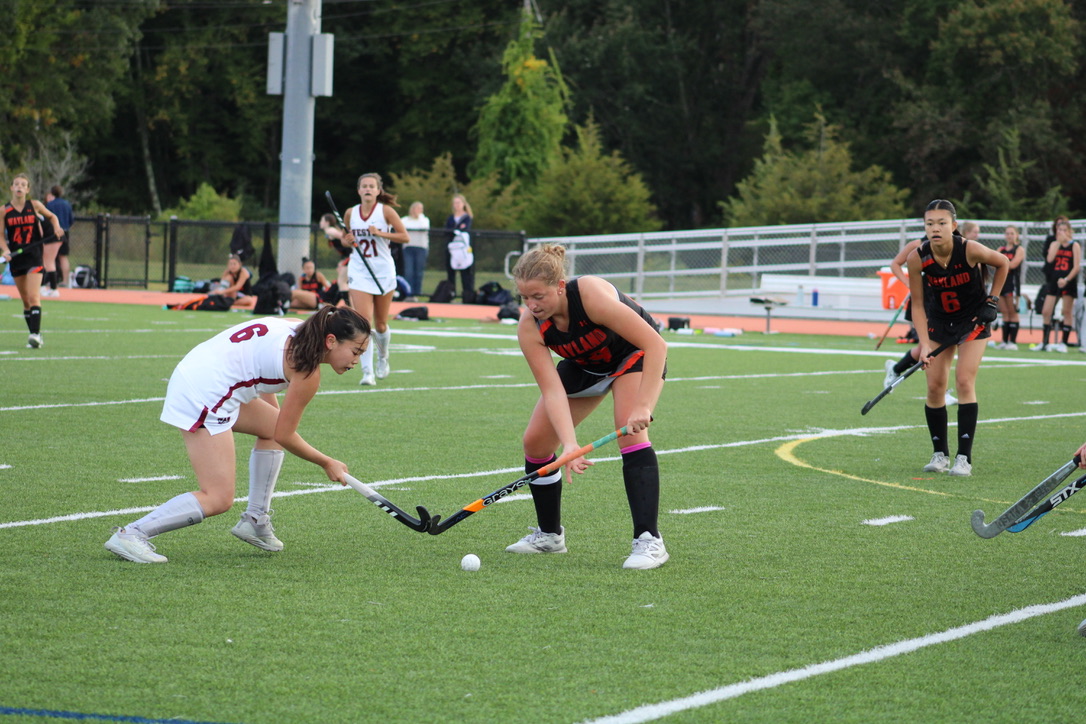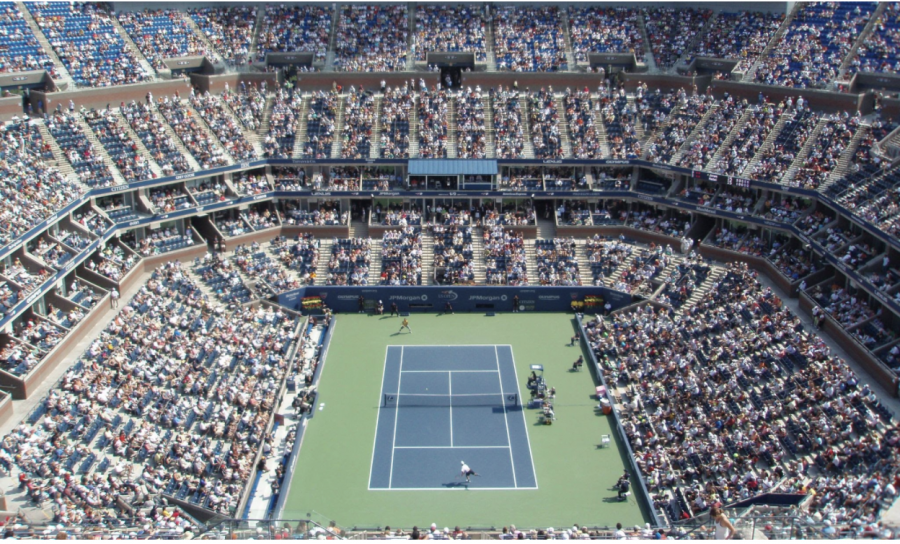Opinion: Vaccination double standards plague the US Open
A packed house at Arthur Ashe Stadium watches men’s singles during the US Open. At the 2021 US Open, fans were required to be vaccinated while players were not, sparking criticism from some fans and players.
October 8, 2021
As fans geared up to watch the US Open live at the USTA Billie Jean King National Tennis Center in Queens, NY, they waited eagerly to make their way into the center. Thirty minutes passed. Then an hour. The queue shuffled uncomfortably. The heat began to bear down on them. The line felt unbearably crowded, and people were starting to mutter in irritation.
The cause for the delay? Lines into the stadium were directed into two streams, at the head of which each individual had to present some evidence of at least one dose of a COVID-19 vaccine before being allowed to proceed. While this holdup may not have been celebrated, the reason behind it was understandable. After all, making sure everyone who entered the crowded stadium was vaccinated would be a necessary step to help ensure everyone’s safety, right?
While this was true for all of the fans entering the stadium, players, as well as their team members, were exempt from the vaccination requirement. Of all the professional sports, tennis has one of the lowest vaccination rates among its players. Only about 50% of professional tennis players are vaccinated, as contrasted to the WNBA (99%), MLS (95%), NBA (95%), NFL (93%) and MLB (85%).
What about the sport’s top players? Turns out they may be leading the way not just in USTA points, but in vaccination resistance as well. Many of the big names in tennis are refusing to get vaccinated, including current World No. 1 Novak Djokovic, the winner of this year’s US Open, and World No. 2, Daniil Medvedev, World No. 3 Stefanos Tsitsipas and World No. 4 Alexander Zverev.
During a news conference before the US Open, Djokovic shared his opinion on getting the COVID-19 vaccine.
“[Getting vaccinated is a] personal decision,” Djokovic said. “Whether someone wants to get a vaccine or not, that’s completely up to them.”
In addition, he’s also mentioned previously that he is “opposed to vaccination.” Many other players echo this perspective, including Tsitsipas.
“I don’t see any reason for someone of my age to do it,” Tsitsipas said in an interview during the Western & Southern Open in Cincinnati. “[The vaccine] hasn’t been tested enough, and it has side effects. As long as it’s not mandatory, everyone can decide for themselves.”
Many fans, as well as some of the other players, were upset about this predicament. Several of the players, including former US Open champions Andy Murray and Victoria Azarenka, expressed doubt about the lack of a vaccine mandate in professional tennis.
“Ultimately, I guess the reason why all of us are getting vaccinated is to look out for the wider public,” Murray said during a news conference before the US Open. “We have a responsibility as players that are traveling across the world to look out for everyone else.”
Azarenka also highlighted the double standard in a press conference.
“[It’s] a bit bizarre that fans have to be vaccinated and players [do] not,” Azarenka said.
It was truly unfortunate that the double standard tarnished what was otherwise an exceptional US Open on the courts. In the men’s draw, Djokovic lost in the finals and. Along with losing the finals, he lost a rare opportunity to embellish his amazing career with the highly coveted Calendar Grand Slam (winning all four majors in the same calendar year). In the women’s championships, the finals featured two teenagers, Emma Raducanu, 18, and Leylah Fernandez, 19. Raducanu ultimately overcame Fernandez, becoming the first ever qualifier to win any of the four major titles.
A lot of what’s happened this year has been unexpected and odd, and the US Open was no exception, especially with the added pressure of trying to organize the event in a safe way. On one of the grandest stages in one of the most entertaining and historically significant US Open tournaments in recent history, tennis lost a big chance to send a positive message and help make the world a safer place.
That’s the biggest indignity for the fans, especially those who put up with so much just to be there.




























Bryan Hill • Oct 11, 2021 at 9:10 PM
Woah, this was surprisingly ignorant for a seemingly well educated, well-adjusted group of writers.
Fans have to be vaccinated because they are one of the masses.
The player does not because they have achieved a higher STATUS among their fellow human beings!
The player, however he has done it, will most certainly be mourned by more than just his immediate family and social circle to those he does not know personally.
However, the only ones that mourn for the masses are their immediate family members and other members of their social circle.
Ultimately, the reason why the players do not have to be vaccinated is because they have something that the fans do not, and that something is Status, and whatever allowed them to achieve that status whether it is skill, luck or some other factor.